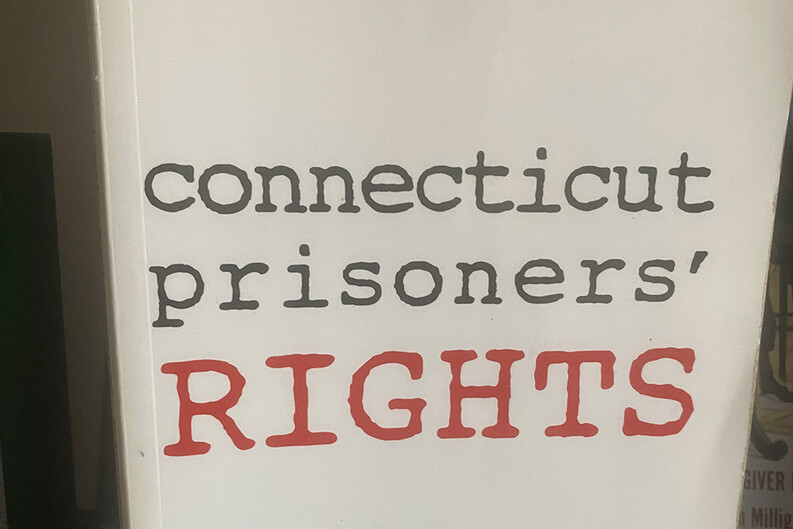Liman Center Project to Help Incarcerated People Know Their Rights

In 2008, when Jennifer Taylor ’10 was a student in Yale Law School’s Prison Legal Services clinic and working with Professor Brett Dignam, she helped answer letters from people incarcerated in Connecticut. In these replies, she would often copy and include pages from a manual that explained the legal rights of people held in the state’s prisons. Fourteen years later, as the Director of the Arthur Liman Center for Public Interest Law4, Taylor is revisiting the manual as part of a joint project with the Lillian Goldman Law Library5 and the Law and Racial Justice Center6.
The original manual, Connecticut Prisoners’ Rights, was written by student Peter Stern ’97 and published in 1997. It includes information about administrative rules, policies, and legal requirements that govern sending and receiving mail, personal privacy, and prison conditions, among other topics. The manual also describes how incarcerated individuals can enforce their rights, and the options available to those who believe their rights have been violated.
After returning to Yale Law School this year, Taylor learned that the manual continues to serve as a resource for incarcerated individuals and for clinic students trying to help them. However, it hadn’t been revised since she was a student.
“That was concerning,” she said, “because the manual is out of date in a lot of ways.”
As part of the Liman class Research for Reform, students are reviewing Connecticut Prisoners’ Rights and developing a system for processing and responding to the letters from incarcerated people that the Liman Center, the Lillian Goldman Law Library, and other parts of Yale Law School receive. The questions posed in those letters will help guide the information included in the revision of the manual.
Both Taylor and her co-teacher, Kayla Vinson, the inaugural Executive Director of the Law and Racial Justice Center at Yale Law School, see the class as an opportunity to respond to some of the many needs of incarcerated individuals.
“One of the most striking and devastating lessons from my career as a lawyer has been the massive gulf between the legal needs of incarcerated people and the capacity of public interest advocates and organizations to provide that help,” Taylor said.
One goal, according to Taylor, is to publish the new manual in print and online and make the resource available to currently and formerly incarcerated people in Connecticut. Another of Taylor’s goals is to have an impact on law students just as her experience with the Prison Legal Services clinic influenced Taylor’s career and work.
Vinson, who is also part of Yale Law School’s Prison Letters Project7, shares the hope that these efforts will help incarcerated people and protect their rights.
“The manual is a tool they can use to make legal arguments that help to reshape the law,” she said. “For the many people serving time under excessive sentences or wrongful convictions, I hope this project helps to rectify those wrongs.”
Liman Projects: Research for Reform8, held in the fall and spring, offers students an opportunity to work collaboratively with faculty on issues related to detention and access to justice. In addition to updating the prisoners’ rights manual, current projects are focused on regulation of solitary confinement9, voting in detention10, and working with Freedom Reads11 to provide access to books for people in detention.


